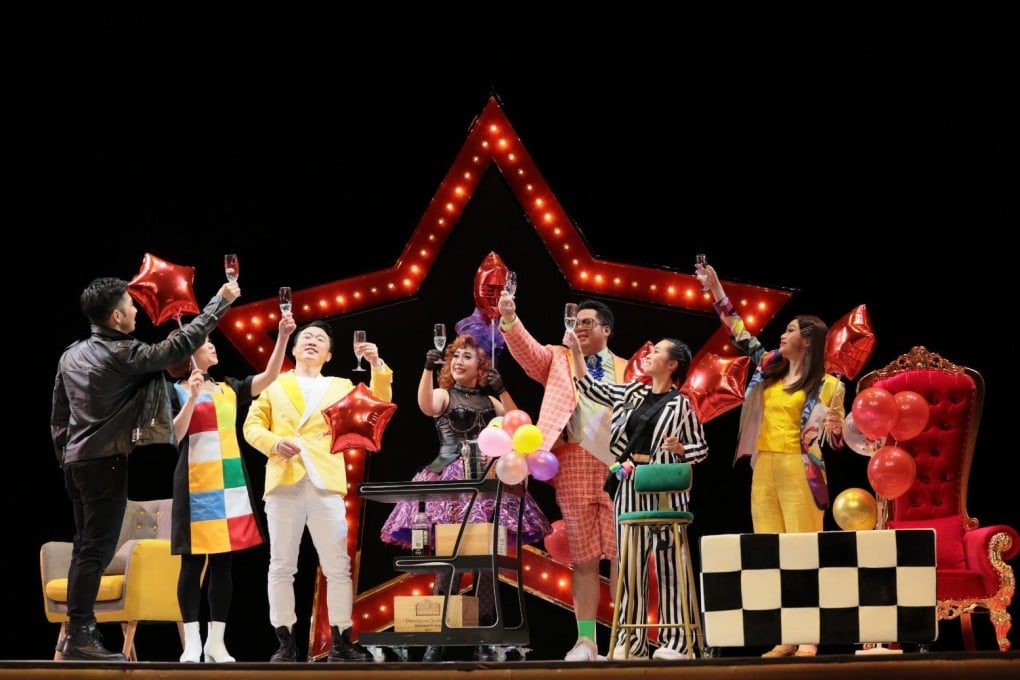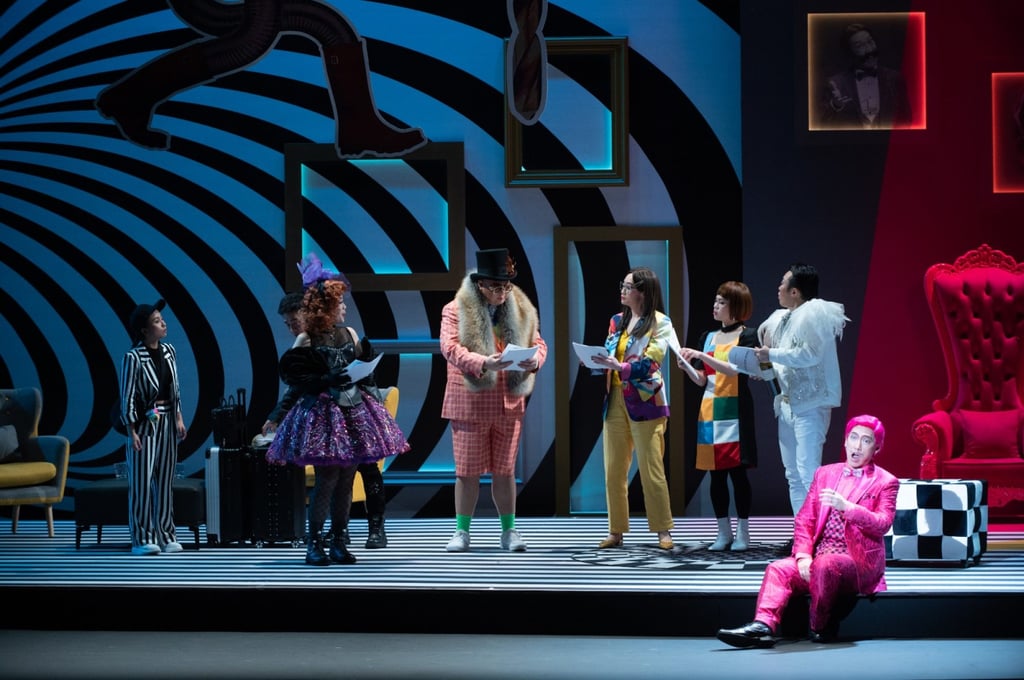Review | Italian comic opera’s intelligent staging by Hong Kong Grand Opera bodes well for the company’s future development
- Cantonese dialogue replaced recitatives in the company’s presentation of Cimarosa’s ‘The impresario in distress’, and amplified the characters’ identities
- Singers did their best with the 18th-century Italian lyrics, but only one, Samantha Chong, felt secure in her diction; Phoebe Tam’s singing was a bright spot

Conceived as an add-on for another comic opera (The Dupe), Domenico Cimarosa’s L’impresario in angustie (best translated as “The impresario in distress”) soon took on a life of its own to become one of the most successful comic operas of the latter part of the 18th century.
The opera premiered in Naples in 1786, the same year as Mozart’s Marriage of Figaro. It then enjoyed performances across the Italian peninsula and eventually all of Europe –Vienna, Lisbon, Copenhagen – and even the then sleepy German town of Weimar.
There, no less a figure than Johann Wolfgang von Goethe, having seen L’impresario in angustie performed by five male castrati in Italy, translated the libretto into German for a string of performances at the local court theatre.
As the opera travelled, the music, and especially the text, were tampered with and adapted to local taste. Hong Kong Grand Opera, in presenting its first staged opera, has successfully revived this tradition.

The original Italian title remains, but the Chinese title, “Sesame Boss”, plays cleverly on the Cantonese approximation of Cimarosa. Also unchanged are the texts of the set pieces – arias and ensembles – performed by a valiant cast of seven singers: two sopranos, a mezzo, a tenor, a baritone, a bass and a countertenor.
